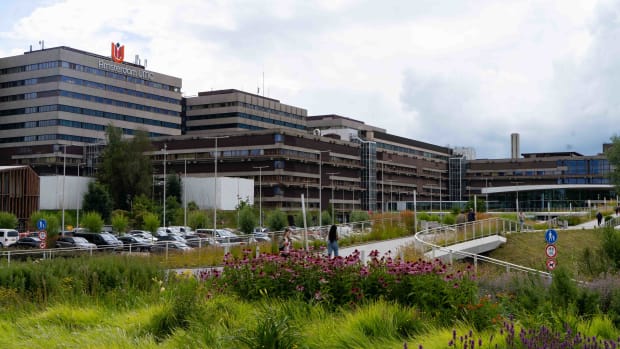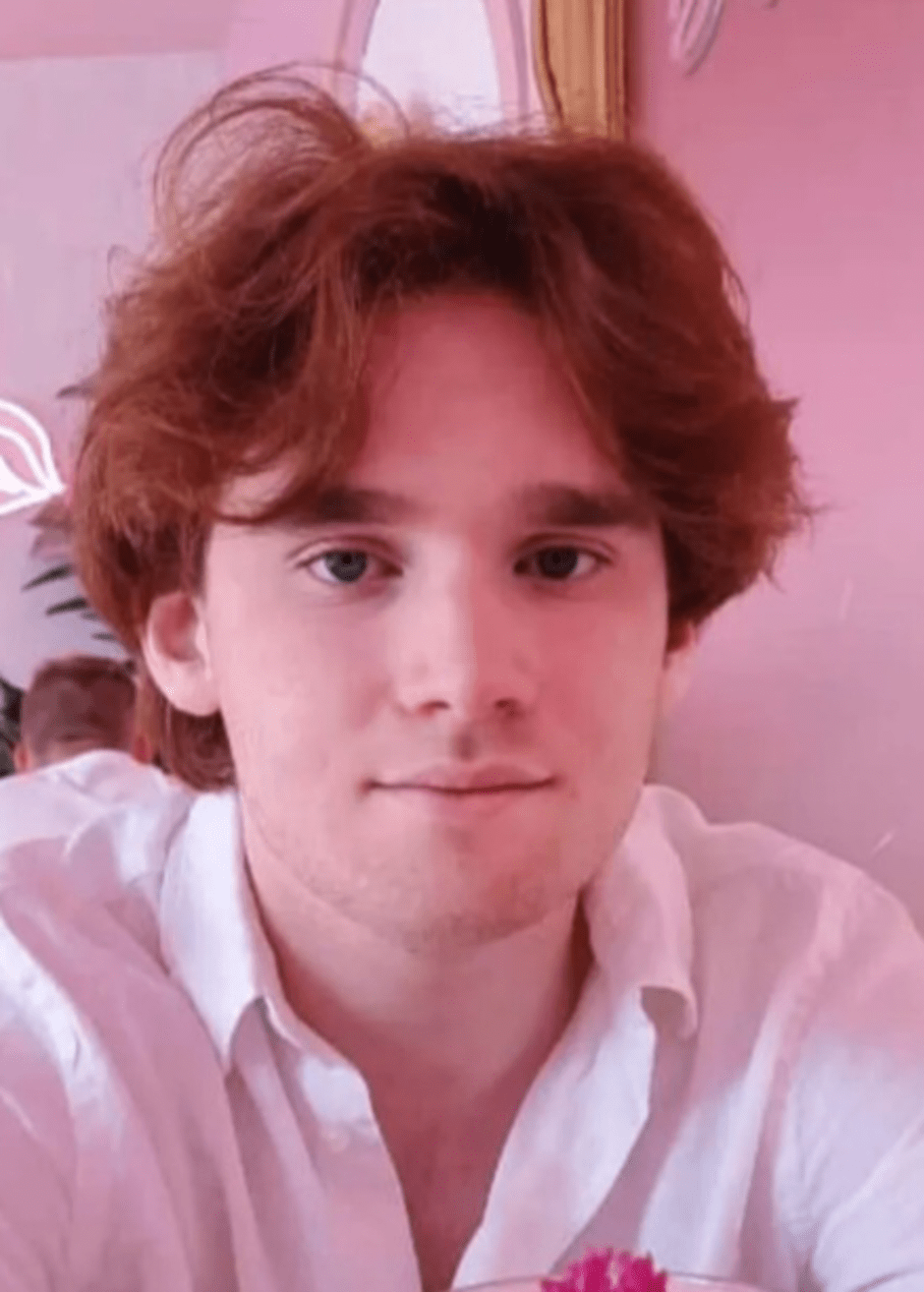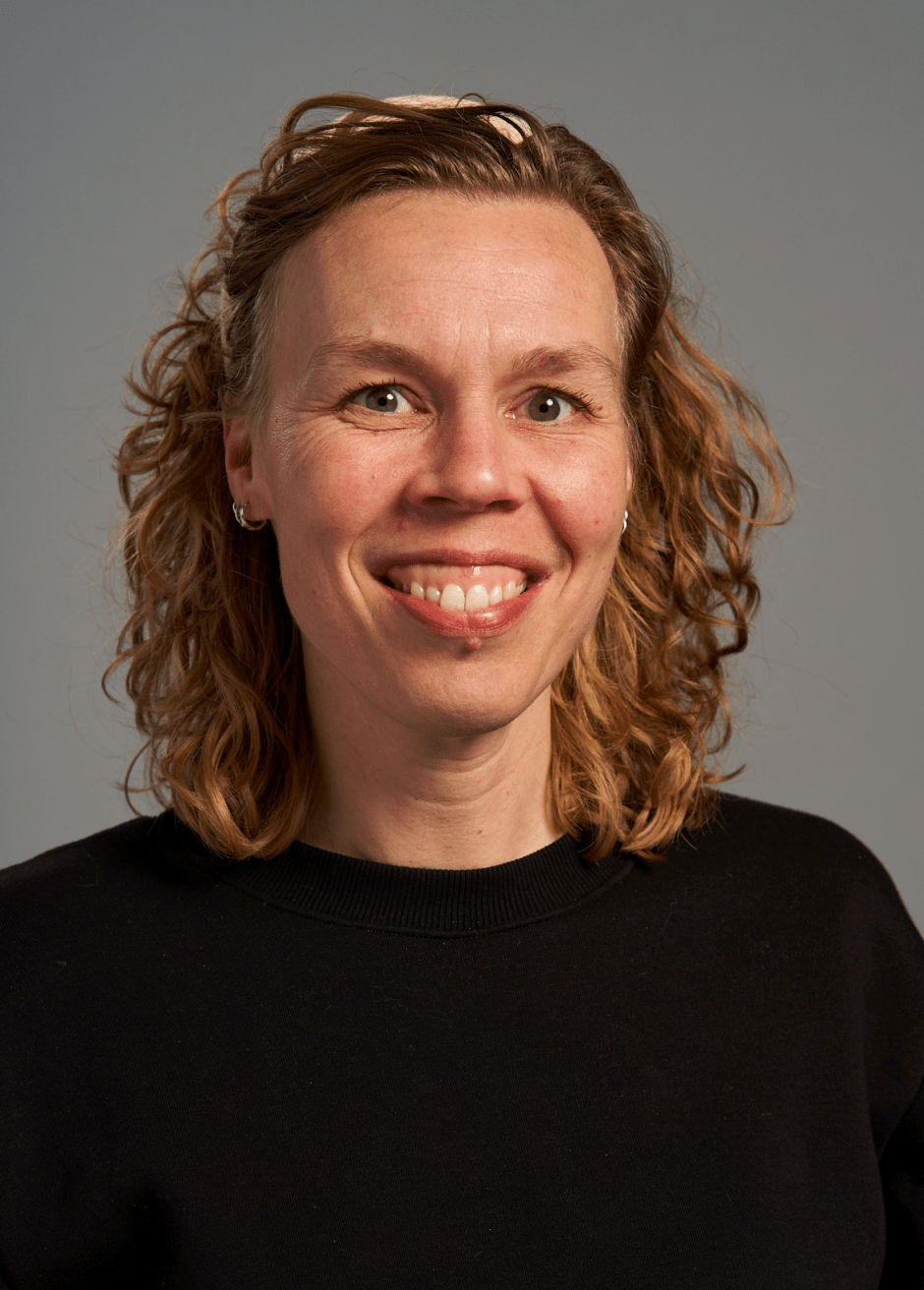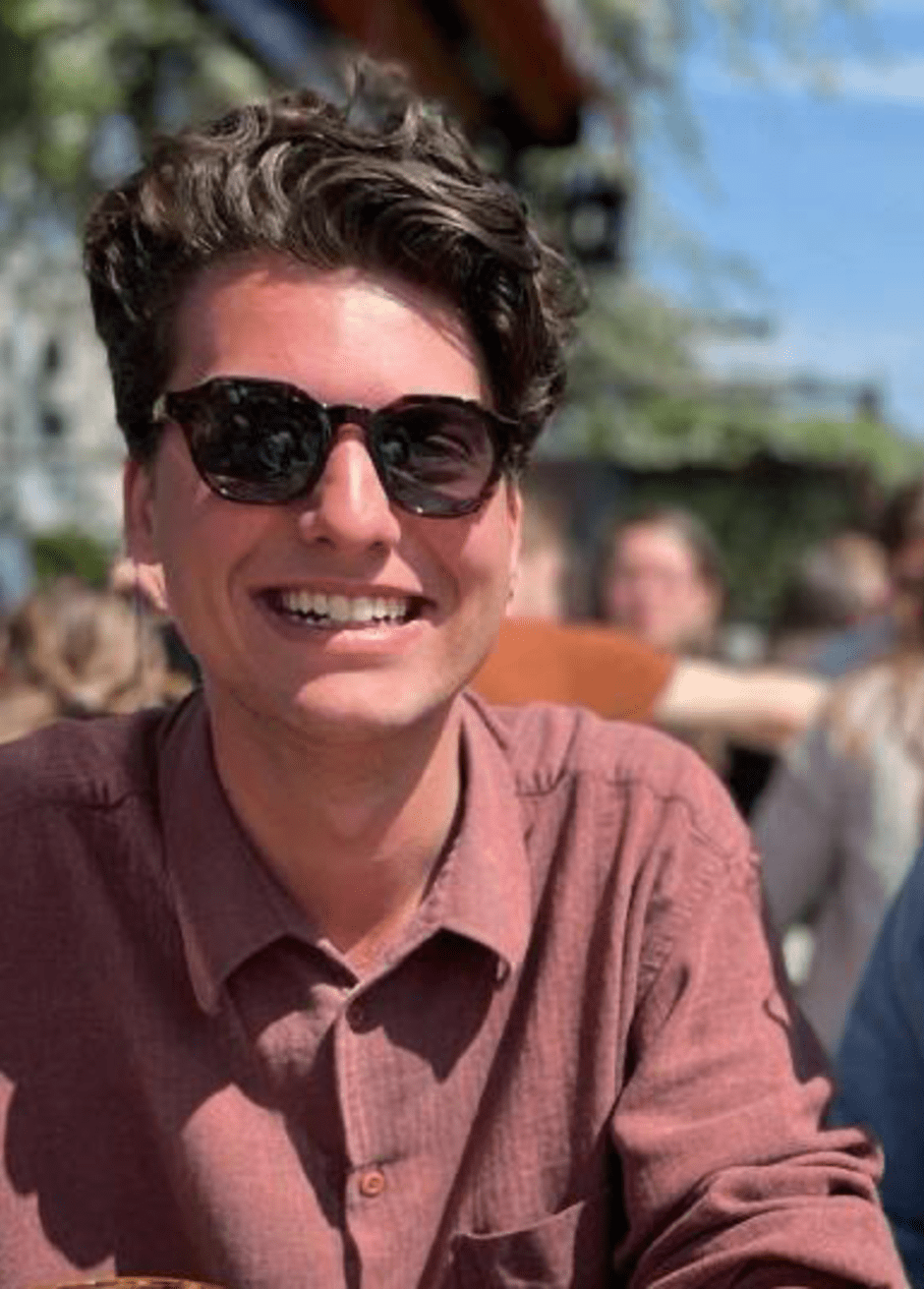
What if you don’t want to become a doctor after all?
An increasing number of medical students openly doubt whether they want to become doctors. National initiatives respond to the problem, as does career guidance at the UvA. “In med school there should be a bit more room for doubt.”
Lucas Moolenburgh (25) knew when he was eight that he wanted to become a doctor. And while he also cultivated a love for cultural subjects during high school – he even auditioned for drama school – he was accepted into medicine at 18 and started his bachelor’s degree.
He now teaches Greek and Latin at high school. A career switch that is sometimes still frowned upon, he experiences. “But classical languages make my heart beat faster, and in medicine I hadn’t found that feeling yet. In the end, you do have to do a job for all your life.”
In recent years, medical students have increasingly sought help in preparing for the job market, notes Laura de Reus, career advisor at the Student Careers Centre at the UvA. Although she immediately comments as well that students may not doubt more often, but rather seek help sooner than students used to.
There was consternation early this year when EenVandaag reported that a large proportion of basic doctors were leaving healthcare. That news was debunked just before the summer by a research report by the Capaciteitsorgaan waar de Geneeskundestudent aan meewerkte. However, that report did note that basic doctors are, on average, basic doctors for a longer period of time before choosing a specialization.
The UvA Student Careers Centre has started working more closely with the Faculty of Medicine in recent years to provide students with more help and information about careers. Since two years, the UvA has also been actively involved in the national initiative Verruim je Horizon, in which graduating doctors talk about how they did not become doctors but became consultants, entrepreneurs, policy officers or chose a master’s degree other than medicine, which has been in existence for several years now.
Figures from advocacy group De Geneeskundestudent (DG) from surveys conducted in 2018 show that two-thirds of medical students have doubts about the field they want to work in. Half also experience stress in doing so. Only 1 per cent of medical students indicate in DG surveys that they do not want to become a doctor. Compared to 2,400 medical students at the UvA, this would be around 24 people.
Doctor rather than lawyer
Although presumably not all students are so open about it. Many medical students still feel that they have to finish their studies once they have been accepted. So did former medical student Jimmy França Vieira van Gent (20), who felt pressure from his parents. “I come from a Brazilian family, first-generation migrant, and there it works like this: you go to the Netherlands to study and then you become a doctor or a lawyer. And I preferred to become a doctor rather than a lawyer.”

Jimmy was just seventeen when he started the double bachelor of medicine and biomedical sciences. Already in the first year, he found out that basic, biological principles attracted him more than working with patients in the clinic. He told his medical friends about his doubts, but postponed the step to study something else. “I was like: I got this opportunity now, there are a lot of people who would have wanted to be in my place, it’s relatively easy for me so I should actually finish it.”
Jimmy also wanted to prove to himself that he could finish the degree. “I felt that if I had stopped halfway through, that I would have disappointed myself. But in hindsight, that was not a good choice, because I spent two years working pretty hard at something I didn’t really want to do.” Pressure from his family also played a role in this. “My mother really wanted me to finish medicine and I didn’t want to disappoint her. That’s tricky, and I think that plays for a lot of people who do medicine.”
His high school friends introduced him to computer science and in the third year of medicine he discovered programming. “I thought that was super fun.” He has since nearly completed his bachelor’s and is studying computer science at the UvA.
His medical friends were not surprised by the switch. To his family, he has not yet told the whole story. “I said that I am doing a preliminary course for the master’s in computational neuroscience. That is also partly true. And that I’m not going to become a doctor, but will continue to do something related to medicine.”
Moreover, medical knowledge is much more widely applicable than just the consulting room, he now knows. “For example, I am working on a student project team that works with artificial intelligence models, among other things for medical applications. That’s where my medical knowledge comes in very handy.”
More than 50 medical professions
That medicine does not only train to become a doctor or specialist in the hospital is something that the government, medical schools and career counsellors also want to bring to the attention of medical students with national campaigns such as Next level doctor. This is something of recent years, as it is precisely the medical professions outside hospitals that are facing shortages.

De Reus explains: “Some doctors’ professions such as surgeon and paediatrician are popular, while horror stories circulate – unjustly – about other positions. Take the addiction doctor, company doctor, insurance doctor, general practitioner... There are more than 50 ways to work as a doctor. Many students don’t know that. Many doctors’ professions outside the hospital have a less attractive profile for the medical student.”
Students hardly come into contact with those professions during their training, and internships also largely take place in hospitals. The vast majority of students (around 70 per cent) prefer to choose a clinical specialism, which is practised within the hospital walls. Meanwhile, a number of medical schools, including the VU, are working to allow more internships to take place outside the hospital.
Career centres in the Netherlands have also been working in recent years to improve the provision of information to medical students. De Reus: “That awareness is important. And also to think earlier during the study, what actually suits me? That can prevent a lot of stress later on.”

Room for doubt
For student Lucas Moolenburgh, the question what actually suits him came only after his bachelor of medicine. “During my bachelor I threw myself fully into student life. The subject matter never really interested me intrinsically but the goal of becoming a doctor did. I never really thought about it during undergrad whether it was something I felt very much at home in. I was eighteen, I think that’s pretty young to make such a big choice anyway.”
During the corona pandemic, Moolenburgh was given more than enough time to think. He was sitting at home, awaiting his cosmesis and couldn’t do much. “Then I decided to study Greek and Latin, something I always found interesting in high school. I also started teaching at secondary school and immediately felt that teaching was something that suited me.”
The choice to eventually continue with classics and quit medicine was not an easy one. “I thought about it for a very long time and discussed it with many people: parents, friends from medicine and beyond. From my parents I didn’t feel any pressure. My grandfather did give me a lecture about money and job opportunities, but he also supports my choice now. As soon as I made my final decision to leave medicine, I felt liberated.”
However, people still frown upon his decision to become a teacher. “People do have a certain image of teachers and doctors, and unfortunately, we live in a country where money and status play an important role. I would like to say that I am not sensitive to that, but I think that is unfortunately not true. I am very happy that I was able to decide in the end not to let money and status prevail after all.”
One tip Lucas has for his fellow students: talk. “With friends, family, student advisers and especially with fellow students. As soon as you tell others, you find out that a lot of medical students have doubts. That certainly doesn’t mean you should quit at the first setback, but in medicine there should be more room for doubt. Otherwise, it’s quite easy to isolate yourself because you think you’re the only one who can no longer see that spot on the horizon.”

